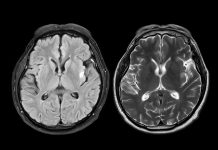An experimental drug known as ulefnersen has shown remarkable efficacy in treating a rare, aggressive form of ALS. Some patients experienced unprecedented functional recovery, offering new hope in a previously devastating diagnosis
In a surprising and deeply motivating turn for the ALS research community and patients, an experimental drug has shown remarkable efficacy in treating a rare, aggressive form of Amyotrophic Lateral Sclerosis (ALS) caused by a specific genetic mutation. While typical clinical trials for ALS aim to slow disease progression, some patients treated with ulefnersen (formerly known as jacifusen) have experienced unprecedented functional recovery, offering a beacon of hope where previously little existed.
The groundbreaking findings, emerging from the research efforts of Columbia neurologist and scientist Dr. Neil Shneider, were presented in a case series published today in The Lancet.
Unexpected Improvements Offer New Perspective
Dr. Shneider, accustomed to tempering patient expectations in experimental therapies, expressed his astonishment at the results. “When testing new drugs for ALS, we do not expect to see clinical improvement,” Shneider stated. “What we’ve seen in one patient is really unprecedented functional recovery. It’s surprising and deeply motivating for us, the ALS research community, but also the community of ALS patients.”
The experimental therapy, developed by Dr. Shneider in collaboration with Ionis Pharmaceuticals, targets a rare form of ALS linked to mutations in the FUS gene. While these mutations account for only 1% to 2% of ALS cases, they are responsible for some of the most aggressive forms of the disease, often striking adolescents and young adults. In these patients, toxic FUS proteins accumulate in motor neurons, leading to their eventual destruction.
Remarkable success stories for a rare form of ALS emerge from case series
The published case series involved 12 patients, all treated with ulefnersen. Among them, two individuals demonstrated extraordinary responses to the therapy. One young woman, who has been receiving injections of ulefnersen since late 2020, remarkably regained the ability to walk unaided and to breathe without mechanical ventilation – functions previously lost to her disease. She has now lived longer with this juvenile-onset form of FUS-ALS than any other known patient.
Another patient, a man in his mid-30s, began treatment when he was asymptomatic but showing early signs of the disease through electrical activity in his muscles. After three years of continuous treatment, he remains free of FUS-ALS symptoms, and the abnormal electrical activity in his muscles has even improved.
Beyond these individual successes, the data revealed a significant reduction in neurofilament light, a biomarker for nerve damage, by up to 83% after six months of treatment across the patient cohort. “These responses show that if we intervene early enough and go after the right target at the right time in the course of disease, it’s possible to not only slow disease progression, but actually reverse some of the functional losses,” Dr. Shneider emphasised. He also highlighted the findings as a testament to precision medicine and therapy development rooted in a deep understanding of disease biology.
While most other symptomatic patients in the series did not survive their aggressive disease, Dr. Shneider noted that “several apparently benefited from the treatment. The progression of their disease slowed, and they lived a longer life as a consequence.” Importantly, the case series also established the drug’s safety and tolerability, with no serious adverse events reported.
From compassionate use to global clinical trial
The positive results from these initial patients spurred Ionis Pharmaceuticals to sponsor a global clinical trial of ulefnersen, now underway and led by Dr. Shneider. “Now we are eagerly awaiting those results, which we hope will lead to the approval of ulefnersen,” Dr. Shneider said.
The journey of ulefnersen began as an effort to aid a single patient, Jaci Hermstad from Iowa, whose identical twin had succumbed to the disease years earlier. Dr. Shneider, collaborating with Ionis Pharmaceuticals, developed the drug based on his earlier research in mice, which showed that FUS mutations cause toxic protein accumulation in motor neurons and that reducing these levels could prevent or delay ALS onset and progression.
Ulefnersen is an antisense oligonucleotide (ASO), designed to silence the FUS gene and reduce the production of both toxic and normal FUS proteins. Studies indicated that mature neurons can tolerate a reduction in normal FUS protein, providing the rationale for this targeted approach. In 2019, Dr. Shneider obtained FDA permission to administer ulefnersen to Jaci through an expanded access program, often referred to as “compassionate use.”
Since then, at least 25 patients worldwide have received ulefnersen (originally named jacifusen in Jaci Hermstad’s honour) through such programs, including the dozen patients detailed in The Lancet publication.

![Firing Neurons Firing Neurons - 3d rendered image of Neuron cell network on black background. Conceptual medical illustration. Healthcare concept. SEM [TEM] view. Glowing neurons signals.](https://www.openaccessgovernment.org/wp-content/uploads/2025/05/iStock-2149152496-696x391.jpg)






